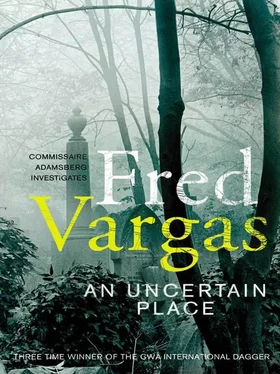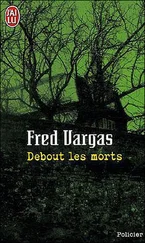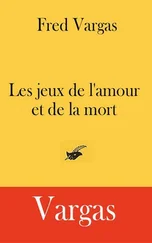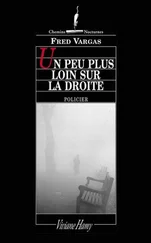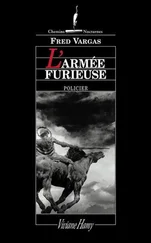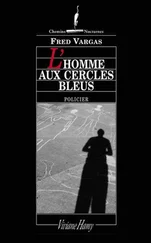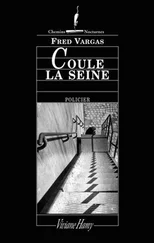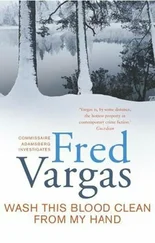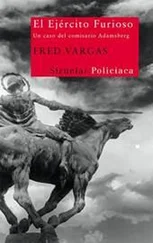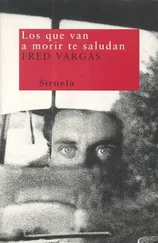‘But what was your uncle doing in Serbia anyway?’
‘He was a Serb himself, commissaire . His name was Slavko Moldovan.’
Justin arrived, out of breath.
‘There’s this guy outside demanding an explanation. We rolled out the crime scene tapes, but he wouldn’t listen. He wants to come in.’
LIEUTENANTS NOËL AND VOISENET WERE STANDING FACING each other and, with their outstretched arms blocking the door, forming a barrier in front of the man, who did not look particularly intimidating.
‘How do I know you’re policemen?’ he kept repeating. ‘How do I know you’re not burglars – especially you,’ he said, pointing at Noël, whose head was close-shaved. ‘I’ve got an appointment, five thirty, and I’m always on time.’
‘Yeah, well, your appointment can’t see you!’ said Noël with an aggressive sneer.
‘Show me your police badges. You haven’t shown me any proof.’
‘We’ve already explained,’ Voisenet said. ‘Our badges are in our jackets and our jackets are inside, but we have to keep this door shut, so that you can’t go in there. The whole site is forbidden to the public.’
‘But of course I’m going inside!’
‘Can’t be done.’
As Adamsberg approached from inside the house, he judged that the man was either singularly obtuse or else rather brave, given his average height and corpulent figure. If he really did think they were burglars, he’d have done better to stop arguing and get away fast. But he looked like someone from the professional classes, self-confident and self-possessed, with the pompous air of a man doing his duty or at any rate his job, whatever the circumstances, at least if it didn’t harm his fee. Was he an insurance agent, an art dealer, a lawyer, a banker? His manner of approaching these two policemen with their shirt-sleeved arms indicated a clear class reflex. He wasn’t somebody who could be sent packing, and certainly not by the likes of Noël and Voisenet. Negotiating with them would be beneath him, and perhaps it was that social conviction, that basic caste scorn, which made him brave beyond foolishness. He had nothing to fear from his social inferiors. Apart from his present attitude, his shrewd and old-fashioned face might be quite attractive in repose. Adamsberg laid a hand on the plebeian arms and nodded to the newcomer.
‘If this really is something to do with the police, I’m not leaving till I see your superior officer,’ the man was saying.
‘I am their superior officer, Commissaire Adamsberg.’
Astonishment, disappointment. Adamsberg had seen these all too often on people’s faces. But almost immediately afterwards there would be submission to the superior rank, in however odd a form it had appeared.
‘Enchanté, commissaire ,’ said the man, holding out his hand. ‘Paul de Josselin. I’m Monsieur Vaudel’s doctor.’
Too late, thought Adamsberg, as they shook hands.
‘I’m sorry, doctor, but you can’t see Monsieur Vaudel.’
‘So I gather. But as his doctor, I surely have the right and indeed the duty to be informed about it. Is he ill, in hospital? Dead?’
‘He’s dead.’
‘And he died at home? Is that why there’s all this police presence?’
‘Correct, doctor.’
‘But when? How? I examined him a couple of weeks ago, and he was in good health.’
‘The police are obliged to keep details confidential. Normal procedure in a murder case.’
The doctor frowned, muttering ‘murder!’ to himself. Adamsberg realised that they were talking to each other across the outstretched arms, like neighbours talking across a fence. The two lieutenants had maintained their stiff attitude without anyone thinking to change it. Adamsberg tapped on Voisenet’s shoulder and lifted the barrier.
‘Let’s go round into the garden,’ he said. ‘We mustn’t contaminate the floor.’
‘I understand, I quite understand. So you can’t tell me anything about it?’
‘I can tell you as much as the neighbours have been told. It was during the night from Saturday to Sunday, and we discovered the body yesterday morning. The alarm was raised by the gardener when he got home at about five o’clock.’
‘Why did he raise the alarm? Did he hear cries?’
‘According to the gardener, Vaudel normally left his lights on all night. But when he arrived back, there were no lights showing – he said his employer had a pathological fear of the dark.’
‘I know, it goes back to his childhood.’
‘Were you his doctor or his psychiatrist?’
‘I was his GP, but also his somatopathic osteopath.’
‘I see,’ said Adamsberg, who didn’t. ‘Did he tell you much about himself?’
‘No, absolutely not, he hated the idea of psychiatry. But what I could feel in his bones told me a lot. I was actually very attached to him, medically speaking. Vaudel was an exceptional case.’
The doctor stopped speaking abruptly.
‘Yes, I see,’ said Adamsberg. ‘You won’t tell me any more if I don’t tell you any more. Our professional secrecy makes it stalemate.’
‘Precisely.’
‘You do realise I will have to ask you what you were doing between eleven on Saturday night and five on Sunday morning.’
‘No offence taken, I’m quite willing to tell you. Given that most people are asleep at that time, and since I don’t have a wife or children, what can I say? At night I’m in bed, unless I get called out to an emergency. You must know that.’
The doctor thought for a moment, pulled out his diary from his inside pocket and carefully rearranged his jacket.
‘Ah, Francisco,’ he said, ‘our concierge. He’s paraplegic, I don’t charge him for treatment – he called me at one in the morning. He’d managed to fall between his wheelchair and the bed and got his tibia at an angle. I sorted his leg out and put him to bed. Two hours later he called me again, the knee was swollen. I was rather sharp with him, and said you’ll just have to put up with it, and I called to see him again in the morning.’
‘Thank you, doctor. You know Vaudel’s handyman, Émile?’
‘Émile? The noughts and crosses specialist? Fascinating case. I took him on as a patient too. He was very resistant, but Vaudel took an interest in him and told him to come and see me. In three years I’d gradually brought his violence level down.’
‘Yes, he did mention that, but he put it down to getting older.’
‘Not at all,’ said the doctor with amusement, and Adamsberg recognised the shrewd and forthcoming face he had detected under the pompous exterior. ‘Age usually increases neuroses. But as I was treating Émile, I was gradually reaching zones that were stiff, and making them more supple, although he kept shutting doors behind me. But I’ll get there in the end. His mother beat him as a child, you know, but he’ll never admit it. He idolises her.’
‘So how do you know that?’
‘This way,’ said the doctor, putting his index finger just up and to the right of the back of Adamsberg’s neck, touching the base of his skull.
He felt something like a sting, as if the doctor’s finger had a spike on it.
‘Ah, another interesting case,’ Josselin noted under his breath, ‘if you’ll allow the observation.’
‘Émile?’
‘No, you.’
‘I wasn’t beaten in my childhood, doctor.’
‘I didn’t say you were.’
Adamsberg stepped to the side, removing his head from the doctor’s curiosity.
‘Our Monsieur Vaudel – I’m not asking you to infringe professional secrecy – but did he have any enemies?’
‘Yes, plenty. And that was the root of the problem. He had enemies who were threatening and even deadly.’
Читать дальше
